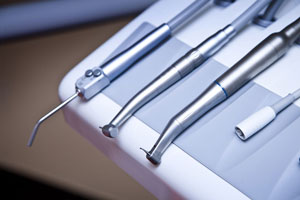FAQs
How often should I brush and floss?
In order to keep the bacterial load in your mouth at a low level and to remove plaque before it becomes tartar, you should brush at least twice a day, and floss at least once. Keeping bacteria and plaque at bay this way dramatically reduces the risk of dental disease, such as tooth decay and periodontal diseases.
How often should I have a dental checkup and cleaning?
For most patients, twice yearly checkups and cleanings are sufficient to keep your teeth and gums healthy. This allows us to remove harmful tartar before it causes gum irritation, and to detect tooth decay at the early stage so as to prevent bigger problems later. For some patients, however, such as those with periodontal disease, more frequent cleanings are required.
How safe are dental X-rays?
Modern dental X-rays are made using digital technology that has reduced the amount of radiation patients are exposed to by up to 90% over the older x-ray technology it is replacing. We follow safety protocols to make sure our patients and x-ray technicians are protected from stray radiation, though this is much less of a problem with digital technology than it was with the film type of x-ray machine.
What causes bad breath, and how can it be treated?
While some cases of halitosis, or bad breath, are caused by medical conditions, most of the time, bad breath is caused by bacteria in the mouth, specifically on the back of the tongue. Many cases of halitosis can be treated simply by brushing the back of the tongue more thoroughly when brushing the teeth. For others it may be food particles trapped between the teeth that are causing the problem, in which case flossing can help. Xerostemia, or dry mouth, can also be responsible for bad breath. If that is your problem, sipping on water frequently should help. If it is determined that you have a healthy mouth but the problem persists, you may be referred to your medical doctor for evaluation.
How can I tell if I have gingivitis or periodontal disease?
Periodontal disease can sometimes progress silently. Many people cannot tell there is anything wrong until it is too late. Keeping your appointments for cleanings and checkups will help us keep an eye on your gum health. However, if you experience symptoms like
- red, puffy, or bleeding gums
- loose or shifting teeth, new gaps between teeth
- pus around teeth or gums
- persistent bad breath
- receding gums
- sensitivity or soreness
you should be checked for periodontal disease.
What are some risk factors for periodontal disease?
- Poor oral hygiene
- tobacco use
- dental conditions that trap bacteria or food particles (fillings that need repair, ill-fitting bridges)
- certain medications
- pregnancy, oral contraceptives
- some medical conditions like diabetes
- possibly genetics. It’s unknown how big a role this plays.
How can cosmetic dentistry improve my smile?
Cosmetic dentistry is versatile. There are many ways to cosmetically enhance your smile. From simple teeth whitening to brighten a dull, dingy, or yellowed smile, to veneers, which can mask a wide variety of dental flaws, cosmetic dentistry has something to offer almost everyone. Because a functional smile is the best looking smile, many treatments that are restorative are also cosmetic in nature (tooth replacement, for example). So whether you need a whole smile makeover or just a little boost from teeth whitening, cosmetic dentistry can help.








